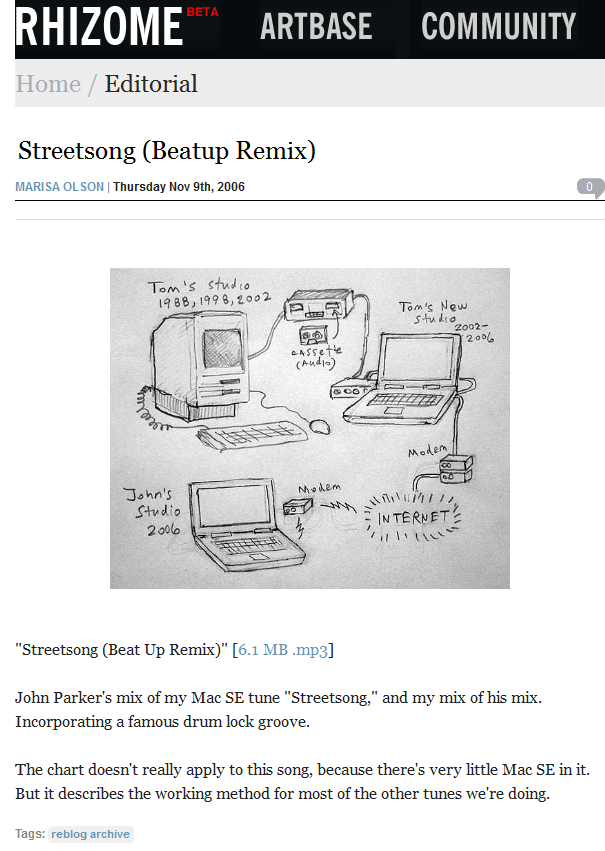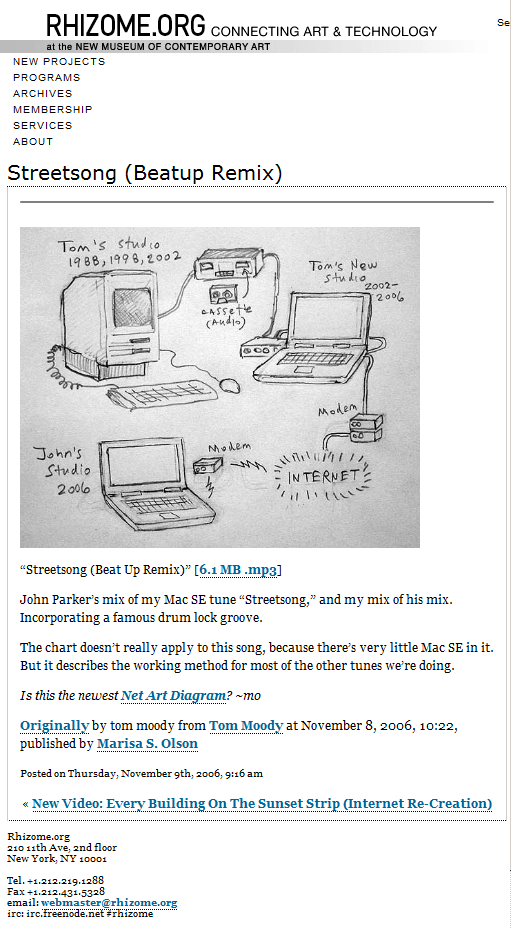Required reading (hat tip DS), especially if you are sick of copyright-owners' sanctimony about their so-called property rights, is Rebecca Tushnet's essay for the Yale Law Journal, "Copy This Essay: How Fair Use Doctrine Harms Free Speech and How Copying Serves It," [PDF]
In a free society private rights are always balanced against the public good, and Tushnet gives some solid reasons for straight-up, non-transformative copying, which courts are increasingly calling "stealing." Examples include:
--copying that promotes democracy by "literally putting information in citizens hands" (for example, speeches, textbook histories, the New York Times' publication of the Pentagon Papers) (pp. 564-565)
--copying for self-expression (using the most apt words to explain and define beliefs, such as the full text of a poem, or "cover versions" of songs) (pp. 546, 568)
--copying for persuasion (using the best words to reach a particular audience, such as MLK's oft-copied "I Have a Dream" speech which itself contains much copied language), (pp. 546, 574)
--copying for participation and affirmation (e.g., the words of a religious ceremony or political oath that must be exact and repeated by everyone in a group) (pp. 546, 578)
--even something as mundane as making a mix CD is participatory and "requires judgment about value and meaning" (p. 545)
She couches these examples of copying as freedoms under the First Amendment of the US Constitution and makes no apology that they are fundamentally, irreconcilably opposed to copyright protection schemes. She offers no solutions but is concerned that the balancing tests under the "fair use" exceptions to copyright (which take First Amendment concerns into consideration along with many other issues), are increasingly focused on whether the copy "transforms" the original in some way, when there are plenty of other reasons why straight copying is still necessary and valid.
But isn't the First Amendment just concerned with political speech? First Amendment rights have been defined over years of judicial decisionmaking and according to Tushnet, can be interpreted to include "protecting political speech, promoting democracy or self-government, furthering the search for truth, or enhancing autonomy and enabling self-expression." (p. 538)
This is important to keep in mind as more and more cases are decided requiring "transformation" of words, pictures, or sounds to avoid infringement. These cases are increasingly stacked in favor of copyright holders who can afford to litigate. One sampling case said that the use of the tiniest sample doesn't even have to be recognizable to be infringing! (Bridgeport Music vs Dimension Films, 2004 WL 1960167) Tushnet argues that these balancing-test, fair-use-based, apparently fair decisions are having the deleterious effect of narrowing the scope of First Amendment rights even though they aren't decided on pure First Amendment grounds. Her essay makes a vigorous case for "straight copying" as a basic right in danger of vanishing.
When we hear about decisions like Bridgeport, we tend to think, "well, there's law and then there's what's moral and ethical--clearly copyright has gone off the rails." Tushnet gives us some "rails" to counter the self-righteous arguments of copyright thugs. The First Amendment protects us against their predations whatever they might say, be able to argue in court, or get written into law in the form of onerous statutes.


